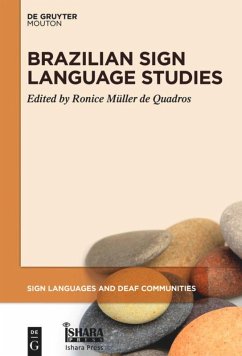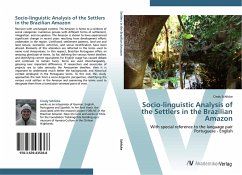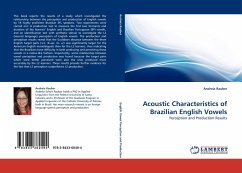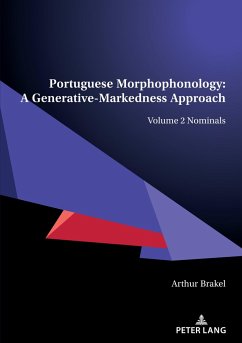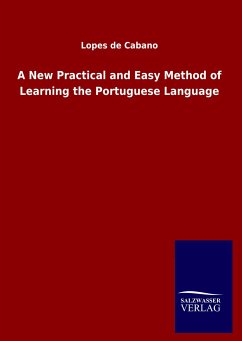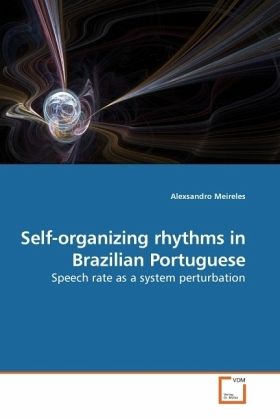
Self-organizing rhythms in Brazilian Portuguese
Speech rate as a system perturbation
Versandkostenfrei!
Versandfertig in 6-10 Tagen
52,99 €
inkl. MwSt.

PAYBACK Punkte
26 °P sammeln!
This book shows how the continuous aspects of speech may explain the discretization of linguistic elements. The research program of dynamical systems theory has been used to demonstrate this phenomenon. The applicability of this theory is supported by the fact that there is no dichotomy between mind and body in this program. Thus, physical and/or concrete aspects live in harmony with mental and/or abstract aspects of language. This is, therefore, a unique approach towards the interpretation of linguistic phenomena. Empirical arguments are presented throughout this book to support this new appr...
This book shows how the continuous aspects of speech may explain the discretization of linguistic elements. The research program of dynamical systems theory has been used to demonstrate this phenomenon. The applicability of this theory is supported by the fact that there is no dichotomy between mind and body in this program. Thus, physical and/or concrete aspects live in harmony with mental and/or abstract aspects of language. This is, therefore, a unique approach towards the interpretation of linguistic phenomena. Empirical arguments are presented throughout this book to support this new approach to linguistic studies. Specifically, speech rate variation, one of the greatest causes of phonetic modi cation, was used to observe the emergence of new rhythmic structures at the lexical and the sentence levels. Finally, this book contributes towards the conciliation of both cognitive and phonetic aspects of language, and to verify the importance of timing phenomena for the analysis ofgrammatical structures. This book is therefore especially useful for professionals in linguistics and speech related fields such as engineering, speech therapy, and speech communication.




